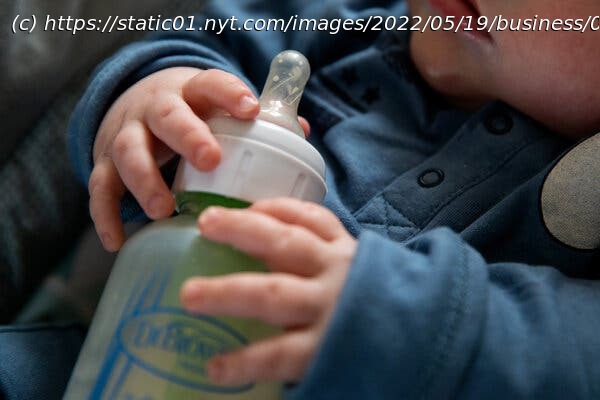With just a handful of companies making U.S. infant formula, a shutdown of Abbott’s plant had outsized impact on the supply.
In the early 1990s, the nation’s biggest makers of baby formula were under fire. The three largest manufacturers, which controlled 90 percent of the U.S. market at the time, were hit with waves of state, federal and corporate lawsuits, accusing them of attempting to limit competition in the space and using their control of the industry to fix prices. Most of the lawsuits were settled or, in some cases, won by the companies. Three decades later, the $2.1 billion industry is still controlled by a small number of manufacturers, who are again in the cross hairs over their outsized market share. The infant formula market was plunged into disarray when Abbott Laboratories voluntarily recalled some of its most popular powdered formulas in February and shut down its plant in Sturgis, Mich., after four babies who had consumed some of Abbot’s products became sick with bacterial infections. Abbott, which controls 48 percent of the market, has said there was no evidence its formula caused any known infant illnesses and that none of the tests performed by regulators have directly linked the cans of formula the babies consumed to the strains of bacteria, Cronobacter sakazakii, found at the plant. But the ripple effects from that single plant closing have been widespread, highlighting the market power of a single manufacturer and the lack of meaningful competition in an industry governed by rules and regulations designed to protect the incumbents. Stores are limiting purchases of baby formula, with shelves in many markets completely bare. Panicked parents of newborns are calling on friends and family to help locate food for their babies, with some resorting to making their own formula at home. And while the Abbott plant was given the green light this week to start manufacturing again — a move that will still take weeks to rebuild inventory on store shelves — there are growing calls from lawmakers for major changes to how the industry operates.
“When something goes wrong, like it has here, you then have a major, serious crisis,” said Representative Rosa DeLauro, a Connecticut Democrat who released a scathing 34-page whistleblower report from a former Abbott employee detailing safety and cleanliness issues at the Sturgis plant. She argued that the industry should be broken up and efforts should be made to promote competition to avoid future shortages. Senator Tammy Duckworth, an Illinois Democrat, urged the Federal Trade Commission last week to conduct a broad study of the infant formula industry and whether market consolidation has led to the dire shortages. Top Biden administration officials have also lamented the power of a few players. On Sunday, Transportation Secretary Pete Buttigieg said the Biden administration should do more to address the industry’s “enormous market concentration.”
“We’ve got four companies making about 90 percent of the formula in this country, which we should probably take a look at,” Mr. Buttigieg said on CBS’s “Face the Nation.”
Today, Abbott is the biggest player. Mead Johnson, which is owned by the conglomerate Reckitt Benckiser, and Perrigo, which makes generic formula for retailers, control another 31 percent. Nestlé controls less than 8 percent.






